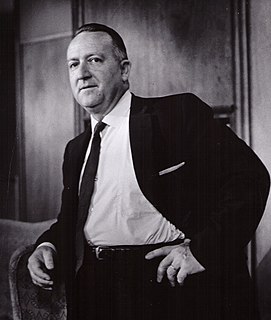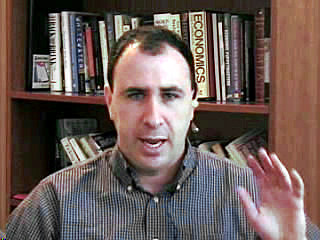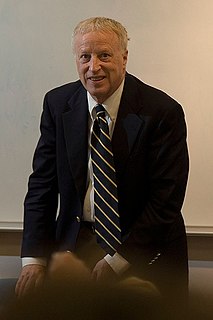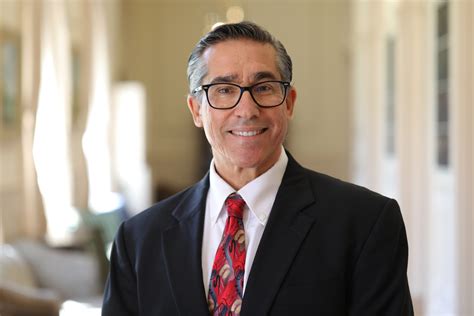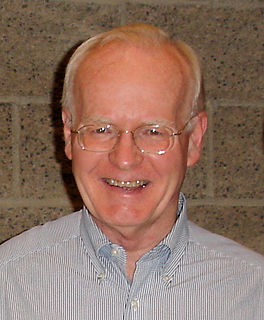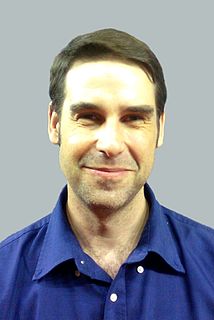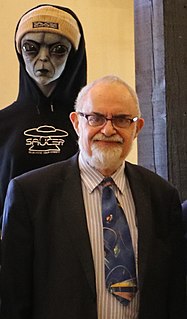Top 882 Incorrect Assumptions Quotes & Sayings - Page 14
Explore popular Incorrect Assumptions quotes.
Last updated on April 20, 2025.
The reason I love travel is not just because it transports you in every sense, but because it confronts you with emotional and moral challenges that you would never have to confront at home. So I like going out in search of moral and emotional adventure which throws me back upon myself and forces me to reconsider my assumptions and the things I took for granted. It sends me back a different person.
It is one of the great ironies of human history that some mortals with incorrect understanding of God and life's purposes sometimes scold God because of the abundance of human misery and suffering-which, indeed, lies all about us. Such individuals almost dare God to demonstrate His existence by straightening things out-and at once! But He is a much different kind of Father than that. Surely it is requisite to eternal life that we come to know God and Jesus Christ whom He has sent (see John 17:3).
The world breaks everyone or nearly everyone, of their childish illusions, assumptions and wishes, often painfully and afterwards due to the personal growth in practical experience, insight and the resulting wisdom many are strong at the broken places just like mended broken bones often are, and some people even have the great insight to be grateful for the purifying fire.
The human mind shows an urge to capture into fixed forms through unreal assumptions, that is, fictions, that which is chaotic, always in flux, and incomprehensible. Serving this urge, the child quite generally uses a scheme in order to act and to find his way. We proceed much the same when we divide the earth by meridians and parallels, for only thus do we obtain fixed points which we can bring into a relationship with one another.
We're starting to realize that magicians have a lot of implicit know-ledge about how we perceive the world around us because they have to deceive us in terms of controlling attention, exploiting the assumptions we make when we do and don't notice a change in our environment. There is an enormous amount of really detailed instruction on how to perform magic. People are always blown away by how detailed a description you'll have.
The response of the men who were introduced into polygamy between 1841 and 1846 was anything but enthusiastic. The same was true of the women who were offered the chance of becoming plural wives. Apart from the fact that the new system collided with moral assumptions they had grown up with, there were practical difficulties that made polygamy less attractive. For the men to support additional wives was seldom easy.
A genuine invention in the realm of ideas must first emerge as an abstruse and even partial concept? At first blusha new idea appearstobe verycloseto insanity because to be new it must reverse important basic beliefs and assumptions which, in turn, have been institutionalized and are administered by one or another kind of priesthood with a vested interest in an old idea.
I'm thinking about the idea of poetic license. People say that about certain writers: "Oh, the grammar sucks, but it's just the poetic license." We accept it as being an art form of sorts: the incorrect rearrangement of meaningful things. Unlike sciences, literature as art relies on societal acceptance of a certain vocabulary. We're just making sounds out of our mouths if we don't both accept that what I'm saying has very significant meanings, and I'm accurately targeting what vocabulary I use and how I arrange each word.
The time must come inevitably when mankind shall surmount the imbecility of religion, as it has surmounted the imbecility of religion's ally, magic. It is impossible to imagine this world being really civilized so long as so much nonsense survives. In even its highest forms religion embraces concepts that run counter to all common sense. It can be defended only by making assumptions and adopting rules of logic that are never heard of in any other field of human thinking.
If we choose only to expose ourselves to opinions and viewpoints that are in line to our own, we become more polarized, more set in our own ways. It will only reinforce and deepen the political divides in our country. But if we choose to actively seek out information that challenges our assumptions and beliefs, perhaps we can begin to understand where the people who disagree with us are coming from.
One of the things we've learned during the Obama era is how important norms are, because we've seen how the Republican Party behaved against Obama. So much of what they did was to smash pre-existing norms, which were nothing more than assumptions of how people would behave, which didn't have any real basis in rules or limits.
I certainly have no regrets about overthrowing Saddam Hussein. I'd do it again. And, yes, there are a lot of things that I think we'd all do differently. Maybe we made some erroneous assumptions about the fabric of the society in Iraq and about the solidity of some of the institutions. And yes, there are a lot of things I would do differently. I'd probably work to rebuild Iraq from the outside in, rather than concentrating so much on Baghdad, for instance.
Given Freudian assumptions about the nature of children and the biological predestination of mothers, it is unthinkable for mothers voluntarily to leave their babies in others' care, without guilt about the baby's well-being and a sense of self-deprivation. Mothers need their babies for their own mental health, and babies need their mothers for their mental health--a reciprocal and symbiotic relationship.
Net neutrality is rooted in a number of leftist assumptions, and that is that all corporation is evil, that all profit is evil, and that all people in corporations are not people, because corporations aren't people. A gigantic rip-off. Then you couple their own economic circumstances into this and the way they've been raised, thinking if they want it, they should have it, then you get this so-called informed media and opinion about all this stuff.
Not to any really influential effect, but certainly there have been comments that have surprised me. It's surprising sometimes to get particular perspectives on your work, and it's enlightening sometimes to know that non-writers and readers out there have certain assumptions about everything that I both want to keep in mind and want to forget about why I write, and about the connection between me as a private person and the stuff that I think about on the page.
Perhaps preachers today need to think about the assumptions that are common in their congregation - the plausibilities and comforting assurances - which may in themselves have biblical truth, but can easily become insurance policies waved around as immunity from any kind of serious evaluation of how we are living, whether we are truly following the Lord Jesus in the way he walked, whether we are doing righteousness and justice as God commanded.
Like an unexpected wet mop in the face of tired complacency, The Sovereignty Solution works on the receptive mind as a pry bar works on a tightly sealed box. Written with courage and passion, this is a book whose often counterintuitive clarity shakes entombed assumptions like an earthquake. Whether you end up convinced or not, you will never think about American national security the same way ever again.
As soon as science has emerged from its initial stages, theoretical advances are no longer achieved merely by a process of arrangement. Guided by empirical data, the investigator rather develops a system of thought which, in general, is built up logically from a small number of fundamental assumptions, the so-called axioms. We call such a system of thought a theory. The theory finds the justification for its existence in the fact that it correlates a large number of single observations, and it is just here that the 'truth' of the theory lies.
most Americans are in deep awe of things-as-they-are. Even with everything this obviously out of control, they still tell themselves that those in authority must know what they are doing, and must be describing our condition to us as it really is; they still take it for granted that somehow what is, what is done, must make sense, can't really be insane. These assumptions exercise a tyranny over their minds.
The more aware we are of our basic paradigms, maps, or assumptions, and the extent to which we have been influenced by our experience, the more we can take responsibility for those paradigms, examine them, test them against reality, listen to others and be open to their perceptions, thereby getting a larger picture and a far more objective view.
All reined up in old language and old assumptions, straining to jump clean-hoofed on to a whole new track of being I only suspect is there. I can't see it, because my educated, average head is being held at the wrong angle. I can't jump because the bit forbids it, and my own basic force - my horsepower, if you like - is too little.
Economic theorists, like French chefs in regard to food, have developed stylized models whose ingredients are limited by some unwritten rules. Just as traditional French cooking does not use seaweed or raw fish, so neoclassical models do not make assumptions derived from psychology, anthropology, or sociology. I disagree with any rules that limit the nature of the ingredients in economic models.
The second you become an actress, people take the licence to make many assumptions about you. You're in trouble if you interact with a director/actor. You're in even more trouble if you don't. When I started out, a single YouTube comment would make me sad for days, and I'd wonder how people could say such nasty things about me.
Writing is an act of hope. It means carving order out of chaos, of challenging one's own beliefs and assumptions, of facing the world with eyes and heart wide open. Through writing we declare a personal identity amid faceless anonymity. We find purpose and beauty and meaning even when the rational mind argues that none of these exist. Writing therefore, is also an act of courage. How much easier is it to lead an unexamined life than to confront yourself on the page?
Once a price move exceeds its median historical age, any method you use to analyze the market, whether it be fundamental or technical, is likely to be far more accurate. For example, if a chartist interprets a particular pattern as a top formation, but the market is only up 10% from the last low, the odds are high that the projection will be incorrect. However, if the market is up 25% to 30%, then the same type of formation should be given a great deal more weight.
It is my conviction that if any professional biologist will take adequate time to examine carefully the assumptions upon which the macro-evolution doctrine rests, and the observational and laboratory evidence that bears on the problem of origins, he/she will conclude that there are substantial reasons for doubting the truth of this doctrine. Moreover, I believe that a scientifically sound creationist view of origins is not only possible, but it is to be preferred over the evolutionary one.
The Bell curve is a fact of life. The blacks on average score 85 per cent on IQ and it is accurate, nothing to do with culture. The whites score on average 100. Asians score more. The Bell curve authors put it at least 10 points higher. These are realities that, if you do not accept, will lead to frustration because you will be spending money on wrong assumptions and the results cannot follow.
So much confusion about belief in God, morality, and science arises, not from what people say they believe, but rather from mistaken assumptions about God, morality, and science that they don't know they believe. In Three Theological Mistakes, Ric Machuga, with clarity and grace, explains the genesis of these mistakes and provides the intellectual tools by which we can recover from them.
It is often asserted that discussion is only possible between people who have a common language and accept common basic assumptions. I think that this is a mistake. All that is needed is a readiness to learn from one's partner in the discussion, which includes a genuine wish to understand what he intends to say. If this readiness is there, the discussion wrighteous stupidityill be the more fruitful the more the partner's backgrounds differ.
I think that Donald Trump successfully mobilized a big chunk of America to vote for him and he's going to win. He has won. He's going to be the next president and regardless of what experience or assumptions he brought to the office, this office has a way of waking you up and those - those aspects of his positions or predispositions that don't match up with reality, he will find shaken up pretty quick because reality has a way of asserting itself.
Once the idea of a supernaturalistic creation is fully overcome, the idea returns that the universe must be self-organizing and therefore composed of self-moving parts. Also, insofar as dualistic assumptions are fully overcome and human experience is accepted as fully natural, it begins to seem probable that something analogous to our experience and self-movement is a feature of every level of nature.
Our physical senses and our embodied brains allow us to perceive only a small fraction of reality. We cannot see microbes or untraviolet light, for example. We can hear only a small range of sounds. When we try to describe the otherworld of energies and spirits, we are limited not only by our bodily constraints but by the expectations, assumptions, and language patterns ingrained in us by the culture we were raised in.
James Baldwin is one of the greatest, North American writers of the second half of the Twentieth Century. A prolific writer and a brilliant social critic, he foreshadowed the destructive trends happening now in the whole Western world and beyond, while always maintaining a sense of humanistic hope and dignity. He explored palpable, yet unspoken, intricacies of racial, sexual, and class distinctions in Western societies and the inevitable, if unnameable, tensions with personal identity, assumptions, uncertainties, yearning, and questing.
It was possible, maybe, to have facts in your mind that weren't facts at all. You could build a whole life's story on false assumptions. You could make truths out of untruths and untruths out of truths. Until you spoke them, really said them out loud or checked for sure, you may not have known which were which.
Your assumptions about the lives of others are in direct relation to your naïve pomposity. Many people you believe to be rich are not rich. Many people you think have it easy worked hard for what they got. Many people who seem to be gliding right along have suffered and are suffering. Many people who appear to you to be old and stupidly saddled down with kids and cars and houses were once every bit as hip and pompous as you.
Strip away all the assumptions about what competition is supposed to do, all the claims in its behalf that we accept and repeat reflexively. What you have left is the essence of the concept: mutually exclusive goal attainment (MEGA). One person succeeds only if another does not. From this uncluttered perspective, it seems clear right away that something is drastically wrong with such an arrangement. How can we do our best when we are spending our energies trying to make others lose--and fearing that they will make us lose?
When we sat down to eat I took inventory of the people in the room, and the remnants of my good mood evaporated when I realized how very little I had in common with them – the career dads, the responsible and diligent moms – and I was soon filled with dread and loneliness. I locked in on the smug feeling of superiority that married couples give off and that permeated the air – the shared assumptions, the sweet and contented apathy, it all lingered everywhere – despite the absence in the room of anyone single at which to aim this.
God cannot be referred to as 'good,' 'better,' or 'best' because He is above all things. If a man says that God is wise, the man is lying because anything that is wise can become wiser. Anything that a man might say about God is incorrect... The best a man can do is to remain silent...The true master knows that if he had a God he could understand, he would never hold Him to be God.
Our universe cannot even be stated symbolically. And this touches us all more directly than one might suppose. For example, artists, who have been very little influenced by social systems, have always responded instinctively to latent assumptions about the shape of the universe. The incomprehensibility of our new cosmos seems to me, ultimately, to be the reason for the chaos of modern art.
Feynman's cryptic remark, "no one is that much smarter ...," to me, implies something Feynman kept emphasizing: that the key to his achievements was not anything "magical" but the right attitude, the focus on nature's reality, the focus on asking the right questions, the willingness to try (and to discard) unconventional answers, the sensitive ear for phoniness, self-deception, bombast, and conventional but unproven assumptions.
John's baptism...was a radical act of individual commitment to belong to the true people of God, based on personal confession and repentance... This is one of the main reasons that I do not believe in baptizing infants, who cannot make this personal commitment or confession or repentance. John's baptism was an assault on the very assumptions that give rise to much infant baptism.
If the truth is boring, civilization is irksome. The constraints inherent in civilized living are frustrating in innumerable ways. Yet those with the vision of the anointed often see these constraints as only arbitrary impositions, things from which they-and we all-can be 'liberated.' The social disintegration which has followed in the wake of such liberation has seldom provoked any serious reconsideration of the whole set of assumptions-the vision-which led to such disasters. That vision is too well insulated from feedback.
...I am afraid that education is conceived more in terms of indoctrination by most school officials than in terms of enlightenment. My own belief is that education must be subversive if it is to be meaningful. By this I mean that it must challenge all the things we take for granted, examine all accepted assumptions, tamper with every sacred cow, and instill a desire to question and doubt. Without this the mere instruction to memorise data is empty. The attempt to enforce conventional mediocrity on the young is criminal.
No matter how honest scientists think they are, they are still influenced by various unconscious assumptions that prevent them from attaining true objectivity. Expressed in a sentence, Fort 's principle goes something like this: People with a psychological need to believe in marvels are no more prejudiced and gullible than people with a psychological need not to believe in marvels.
To contact the cosmic giggle, to have the flow of casuistry begin to give off synchronistic ripples, whitecaps in the billows of the coincidental ether, if you will. To achieve that, a precondition is a kind of unconsciousness, a kind of drifting, a certain taking-your-eye-off-the-ball, a certain assumptions that things are simpler than they are, almost always precedes what Mircea Eliade called ‘the rupture of plane’ that indicates that there is an archetypal world, an archetypal power behind profane appearances.
Re-vision – the act of looking back, of seeing with fresh eyes, of entering an old text from a new critical direction – is for woman more than a chapter in cultural history: it is an act of survival. Until we understand the assumptions in which we are drenched we cannot know ourselves. And this drive to self-knowledge, for women, is more than a search for identity: it is part of our refusal of the self-destructiveness of male-dominated society.
For example, instead of being asked to write an article, suddenly editors wanted me to make super-short videos. The assumptions of those video gigs was that kids don't read as much news and basically need to be read to, which I found really problematic and kind of insulting. I thought, Isn't it just that you don't have any money and that's why you want me to make some crappy "content" for your website?
But the idea of science and systematic knowledge is wanting to our whole instruction alike, and not only to that of our business class ... In nothing do England and the Continent at the present moment more strikingly differ than in the prominence which is now given to the idea of science there, and the neglect in which this idea still lies here; a neglect so great that we hardly even know the use of the word science in its strict sense, and only employ it in a secondary and incorrect sense.
Abstract: Careful review of a vast array of relevant evidence clearly leads to the conclusion that some unidentified flying objects are intelligently controlled vehicles whose origin is outside our solar system. All the arguments against the extraterrestrial origin seem to be based upon false reasoning, misrepresentation of evidence, neglect of relevant information, ignorance of relevant technology, or pseudo sophisticated assumptions about alien appearance, motivation, or government secrecy...
There's been an amazing backlash for the last decade in America: political correctness. In many ways, I think that, while we've been remarkably violent in our media, there's been a real schizophrenia. In private, on the Internet, and on public-affairs shows or talk radio, we're way more explicit than we've ever been. But traditional Hollywood has been much more frightened than it ever was in the '70s about presenting things that could be perceived as politically incorrect.
When people tell you who they are, Maya Angelou famously advised, believe them. Just as importantly, however, when people try to tell you who you are, don’t believe them. You are the only custodian of your own integrity, and the assumptions made by those that misunderstand who you are and what you stand for reveal a great deal about them and absolutely nothing about you.
The first thing to understand about nutritionism is that it is not the same thing as nutrition. As the "-ism" suggests, it is not a scientific subject but an ideology. Ideologies are ways of organizing large swaths of life and experience under a set of shared but unexamined assumptions. This quality makes an ideology particularly hard to see, at least while it's still exerting its hold on your culture. A reigning ideology is a little like the weather--all pervasive and so virtually impossible to escape. Still, we can try.
In a world threatened by a famine of righteousness and spiritual starvation, we have been commanded to sustain the prophet. As we give heed to, uphold, and affirm prophetic word, we witness that we have the faith to humbly submit to the will, the wisdom, and the timing of the Lord. We heed prophetic word even when it may seem unreasonable, inconvenient, and uncomfortable. According to the world’s standards, following the prophet may be unpopular, politically incorrect, or socially unacceptable. But following the prophet is always right.
The conclusion to which I am ever more clearly coming is that the only hope of attaining a true system of economics is to fling aside,once and forever, the mazy and preposterous assumptions of the Ricardian school. Our English economists have been living in a fool's paradise. The truth is with the French school, and the sooner we recognize the fact, the better it will be for all the world, except perhaps the few writers who are far too committed to the old erroneous doctrines to allow for renunciation.






